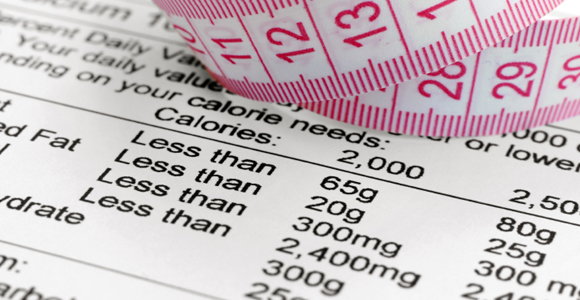Calorie counting is easy, right? Just read food labels and crunch a few numbers. While tracking calories may seem like a no-brainer, the truth is that most Americans vastly underestimate the amount of food that passes through their lips. And the result is often unwanted body fat that dampens our self-image as well as our well-being.
Crunching the Numbers
According to a survey issued by the International Food Information Council Foundation, more than two-thirds of Americans claim to consider caloric content when deciding which foods to buy; however, 90 percent don't know how many calories they need to maintain a healthy weight.
Even more telling, the nation's food supply produces a whopping 3,900 calories per American citizen each day, yet men report eating just 2,618 calories per day and women report consuming just 1,877 per day.
The numbers may not lie, but Americans are obviously lying to themselves about food consumption. That becomes clear when you consider that the average moderately-active man burns 2,400 to 2,800 calories per day, while the average moderately-active woman burns 1,800 to 2,200 calories. If reported eating habits were accurate, most people would be at or below a normal weight. Instead, more than two-thirds of the population is overweight or obese.
Why We're Getting it Wrong
If you're guilty of underestimating your calorie count, don't feel too bad--even dietary experts often get it wrong. According to WebMD, a study of 200 nutritionists revealed that many were unable to guess the number of calories in restaurant meals, with some estimating just 50 percent of the actual count.
How to Better Calculate Your Calories
All this means that if you want to count calories, it may be time to improve your tallying skills. The first step is to keep a journal of everything you eat to avoid forgetting small things like snacks or glasses of juice, which can add up quickly.
You're also better off cooking at home, where you can control which ingredients--and how much of them--go into your meals. Restaurant dishes can be much harder to quantify, and even if you can locate general calorie information there's no guarantee that the chef didn't use a heavy hand with the butter that day.
Perhaps the best way to avoid eating too many calories is to stop counting altogether. Not only can counting calories add stress to the already anxiety-inducing weight-loss process, but it can prevent you from looking at the big picture, which should involve making broad, healthy lifestyle changes rather then portioning out junk food to meet calorie restrictions.
It's much easier, not to mention more pleasant, to win the weight-loss game by switching to whole, natural foods over processed items, and adhering to reasonably smaller portion sizes. Stick with high-fiber nutrient powerhouses like fresh berries and leafy greens, and choose whole-wheat bread and pasta over white flour for longer-lasting fullness. Eat when you're hungry, and chew slowly until you're satisfied. Following these rules, you'll probably meet your calorie goals without ever using a calculator.
Nina Kate is a certified fitness nutrition specialist through the National Academy of Sports Medicine (NASM). She also studied journalism at the University of California, Los Angeles (UCLA), and has contributed to numerous major publications as a freelance writer. Nina thrives on sharing nutrition and fitness knowledge to help readers lead healthy, active lives. Visit her wellness blog at BodyFlourish.com.



